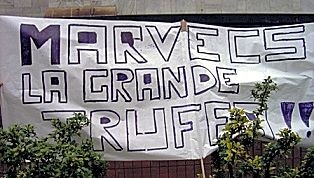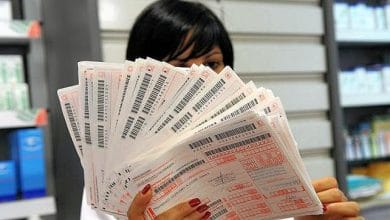
Rome, 4 June. (Adnkronos Salute) – Expenditure on contracted pharmaceuticals and that paid by the National Health Service has dropped in Italy. In 2013 expenditure reached 8.6 billion, with a decrease of 3.4% (it had decreased by just under 10% in 2012). This is what emerges from the '2014 Report on the coordination of public finance' of the Court of Auditors, presented today in Rome.
According to the accounting judges, “the substantial reduction in the cost of approved pharmaceuticals recorded in recent years is due to the combined effect of several factors: the reduction in the average price of drugs, due to the inclusion of new generic drugs in the formulary; the implementation of monitoring of the level of appropriateness of therapeutic prescriptions; the savings originating from the increase in the discount on the price of medicines paid by wholesalers and pharmacists; the recalculation of the ceiling relating to local pharmaceuticals to 11.35%, net of the amounts paid by the citizen for the purchase of medicines at a price different from the maximum reimbursement price established by AIFA, with activation of the already envisaged pay-back mechanism by current legislation in the event that the aforementioned limit is exceeded".
It's still. According to the Court, among the causes that have favored the reduction of the pharmaceutical expenditure under the agreement there is "the growth in the share of the expenditure borne by the citizen, in relation to the sharing measures adopted in certain regions subject to the recovery plans and the co-payments on medicines in force even in regions not subject to repayment plans; the strengthening of direct distribution, especially in the regions subject to a recovery plan, has led to the shift of market shares from the conventional channel to that of direct distribution, with the consequent savings to the benefit of the regions, given by the lower remuneration of the distribution chain".
Ticket and shopping, Corte conti passes NHS to X-rays
Rome, 4 June. (Adnkronos Salute) – Over 109 billion euros: this is the amount of health care expenditure recorded in 2013. Overall expenditure for health care in fact amounted to 109.3 billion, albeit a slight decrease compared to 2012. Also this year the figure in the final balance it remained well below the figure forecast in the Def of April 2013 (111.1 billion). This is what emerges from the '2014 Report on the coordination of public finance' of the Court of Auditors, presented today in Rome, which x-rays the accounts of the National Health Service.
In detail, the costs of personnel (of healthcare companies, hospitals, university hospitals, public Irccs, belonging to health, professional, administrative and technical roles, as well as the cost relating to the payment of the allowance for university staff) in 2013 amounted to 35.2 billion, down by 1.2% compared to 2012. The decreasing trend recorded in recent years is confirmed. Costs relating to the purchase of goods and services also decreased, amounting to 35.1 billion (-1.5% compared to 2012). As regards purchases of goods, there was instead an increase of 2.5%. This growth was influenced by the items relating to the costs of pharmaceutical products (up by 5.8%) and medical devices (up by 2.7%).
It's still. Health and non-health services (health transport, consultancy, training, etc.) overall increased by around 1% compared to 2012. A result, however, which is the result of a 1.6% growth in health services and a strong decrease in non-healthcare ones (-7.7%). In contracted non-health services (laundry, cleaning, canteen, heating, etc.) the decline was 2.4%. Reduction also for expenses for maintenance and repairs (-0.1%), for the use of third party assets (-1.7%), for provisions (-26.1%) and for interest expense and financial charges (-3.4% ). In 2013 contracted pharmaceuticals also declined. In the year, expenditure reached 8.6 billion, with a decrease of 3.4% (it had decreased by just under 10% in 2012). On the revenue side, the reduction compared to 2012 is 0.9% and extends with different intensities to almost all items. Loans (indistinct and restricted) show a decrease of 0.6%.
Assogenerics: "Equivalent to a fundamental leverage for savings, but still penalized by the pay-back"
04 JUNE - "Even the latest report of the Court of Auditors confirms that among the few items of public expenditure in constant reduction there is that relating to pharmaceuticals, which also in 2013 recorded a reduction of 3.4%, and certainly not why citizens have stopped taking care of themselves. There are many factors that contribute to this result but the fundamental one, as the accounting judiciary recalled once again, is the presence on the generic market which, alone, has led to a very strong reduction in spending". The president of Assogenerici said it, Enrique Hausermann.
Nonetheless, in our country the manufacturers of generic medicines are required to pay the pay-back in the event of exceeding the planned expenditure limit, like the producers of branded drugs "and this unjustly penalizes an entire sector which is instead the origin of the savings". It is true that what remains out of control is hospital pharmaceutical expenditure, but – explains Hausermann – it cannot be ignored that the ceiling is chronically underestimated, and also in this case demanding payback from those who market expired patent drugs, intrinsically less expensive, above all through the tender mechanism, which provides for the awarding of the lowest price, is a contradiction: these drugs must be excluded from the payback system applied to hospital expenses”.
If spending is to be further reduced, leveraging on the equivalent drug - concluded the president of Assogenerici - the patent linkage mechanism should be eliminated from Italian legislation, which delays the admission to reimbursement of new equivalent drugs, with a lack of savings equal to three million euros a day. A mechanism, however, which is now only present in Italy, has been repeatedly declared illegitimate by the European Commission and the European Parliament, which has also voted on a proposal for a directive which prohibits its introduction into national legislation”.
June 04, 2014 – dailyhealthcare.it
Sector studies: pharmacists income -13% compared to 2011
While remaining in second place in the income ranking of taxpayers subject to sector studies, pharmacists recorded a drop compared to the previous year in the 2013 returns, even if, within the categories with the highest incomes, other professionals, such as notaries and lawyers, show a greater decline. The picture emerges from the calculations of the Department of Finance on the income declared in 2013 by professionals subject to sector studies, which generally show an increase of 6.3% in the number of taxpayers, for a total of 3.7 million, also due at the end of the 2011 minimum regime, and a 5.8% drop in total declared income. As regards pharmacies, the average income declared in 2013 amounted to 90,200 euros, a figure that places them in second place in the ranking, after notaries, whose average income is 233,000 euros, and before doctors (64,900). But the 2013 declarations show a double-digit drop, equal to -12.8%. The whole health sector suffers, with the exception of dentists who register a +0.4% compared to the previous year and declare 51,600 euros. Therefore, doctors and healthcare professionals are also affected by a decline, even if at a lower level than that of pharmacies: doctors for example lose 6.6% while other healthcare professionals lose 9.8%, declaring an average income of 23,700 EUR. In any case, among the highest incomes, the greatest decline is that recorded by notary studies, which total a -26.1%. Higher losses compared to pharmacies also among professionals outside the health sector, including lawyers, who score a -15.5% and declare an average income of 49,600 euros, engineers with a decrease of approximately 15% (36,000 euros of income average) and architects with a -19.3% (23,500 euro average income). While, still among the non-healthcare professions, less negative results than pharmacies come from accountants and labor consultants, who lose 6.1% in a year (average income of 58,500 euros).
Frances Giani
Wednesday, 04 June 2014 – Pharmacist33





